DIAGNOSIS – WHAT TO DO? WHERE TO GO? WHAT NEXT?
Autism and other related/similar conditions cannot be diagnosed using medical tests. Instead, diagnosis relies on observation of behavioural features. The criteria is constantly being re-evaluated to reflect the growing understanding of the Autism Spectrum. As our knowledge of autism grows so does the need for re-evaluation of the autism criteria, for example only recently sensitivity to sensory stimuli has been included as part of the criteria.


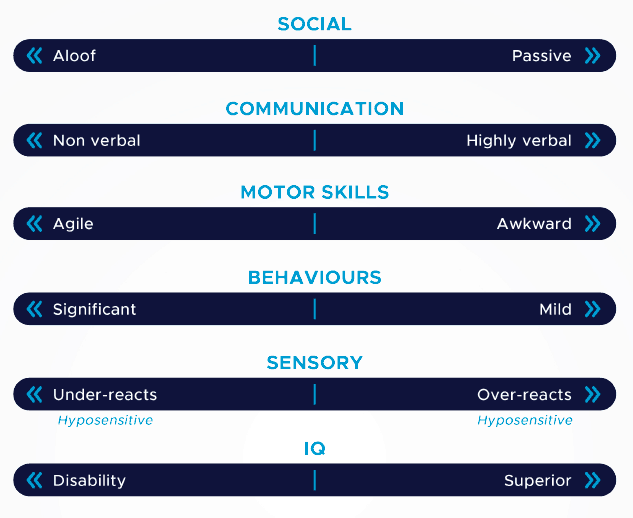
The Autism Spectrum table above shows the complex nature of ASD, and why each person on the spectrum is so different.
What to do if you notice a child engages differently?
Once families, carers, teachers, educators notice the child engages differently it can be hard to know what to do next. When an educator notices this, I always think it is best to suggest to families/carers that they seek help from a paediatrician or psychologist. I strongly believe you should never say you think there is something “wrong” with the child, rather say, “I notice they learn and engage differently.”
I love what Dr Tony Attwood says, “Without a diagnosis, children are judged, with a diagnosis they can be supported.”
It is recommended families seek a professional opinion from a paediatrician, psychologist or other authorised autism specialist.
What to do following a Diagnosis?
FUNDING OPTIONS TO INVESTIGATE
Often getting funding can be difficult and it can be hard to know where to start. Below I have listed a couple of suggestions. Keep in mind the process can arduous and takes time however the returns can be worthwhile.
- Carers Allowance through Centrelink to help pay for sensory toys or paediatricians appointments.
- National Disability Insurance Scheme (NDIS) to get a key worker to help with your child.
- Mental Health Care Plan, through your GP, which allows for up to 10 therapy visits per year to an Occupational Therapist or psychologist subsidised under Medicare. This can be extended for another 5 in some cases.
- Complex Care Needs Plan allows for 5 speech therapy appointments subsidised by Medicare per year.
- Helping Children with Autism funding has now been replaced with NDIS in most regions.
- Notify your school or preschool ASAP. I recommend speaking to staff about how to access extra learning support for your child or any other services the school provides.
WEBSITES TO HELP YOU ALONG THE WAY
SUPPORT GROUP
You can often find a local support group for parents/carers with children on the Autism Spectrum and there are a number of online ones as well!
These support groups will be able to offer you lots of helpful tips, resources, local services as well as provide you with the opportunity to talk to others going through a similar situation as you.
MOST OF ALL LOOK AFTER YOURSELF
WHAT TO DO IF FAMILIES/CARERS DON’T WANT A DIAGNOSIS?
Part of the grief process is “denial” and occasionally families/carers resist diagnosis as part of that process. It is important to support and guide them where possible and be an advocate for the child to get the support and understanding they require.
In Module 2 of my Accredited Early Childhood Course I explain the stages of grief. If you want to learn more join my 5 Hour Online Course.
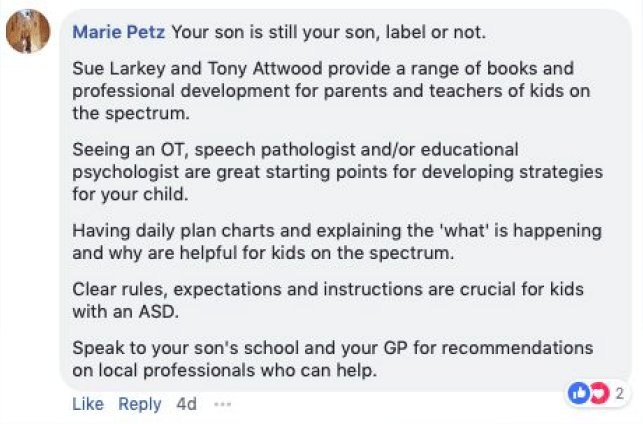

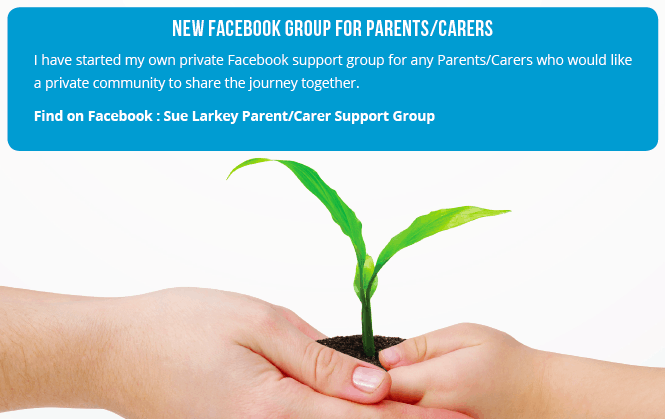
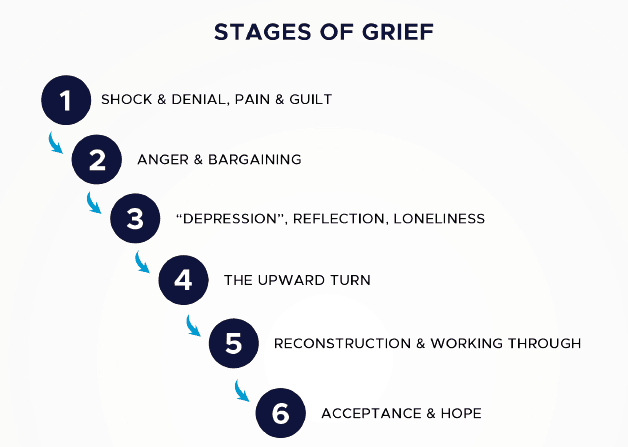
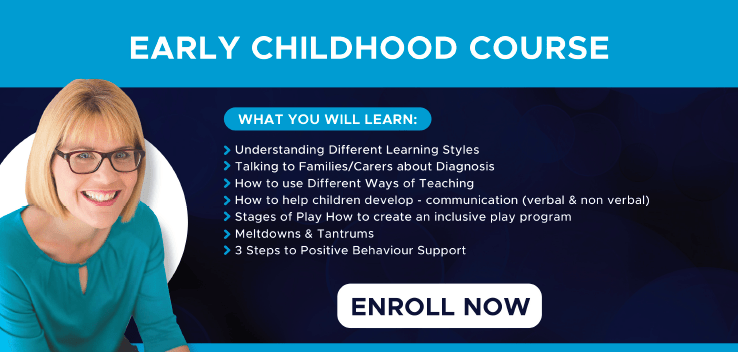

 For all orders outside Australia please email
For all orders outside Australia please email 